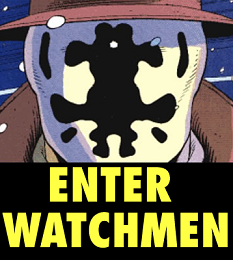Lots of filmmakers set out to make an evocative picture without concern for making an engaging one. Their motivation, I believe, is to do something out of the ordinary that will set them apart as artists. They see storytelling as a conventional skill, subject to, well, convention: Why bother with tension and release and plot? Anybody can do that. I, the artist, will evoke a mood. And that certainly can turn out okay, but most of the time it does not. Most of the time, it results in another volume for the ongoing arthouse library of self-indulgent twaddle.

Two Lovers is a splendid exception, both evoking a mood and telling a story. Not a complicated story, not a Jurassic Park story, and not even a Moody Family Drama story, but a story of familiar feelings in what for most us will be an unfamiliar setting populated by unfamiliar people. Two Lovers is mood-heavy account of a young man’s simultaneous romances with two women. Instead of ending up in bathos–the usual destination–the filmmakers show this young man carrying around his past while he tries to find a happy future. This conflict directs the nature and depth of the romances. In the end we see how happy endings are sometimes the saddest of all.
Joaquin Phoenix plays this fellow, and the character seems entirely likely thanks to two things. The smart script from Ric Menello and James Gray (who also directed) does just what a script is supposed to do: use moments of activity to show–not tell–how this young man feels about himself and life. The introverted delivery boy turns out to be an occasionally smooth ladies’ man, a dancer, a joker, a conversationalist. We wouldn’t have suspected that until we see him become these things, and the discovery is an engaging surprise that also contributes to mood. Dissonance is key: like a real person, this character contains contradiction, and it makes us want to know him.
The other thing that makes the character likely is the “acting skill” (whatever that is–I have never been able to quantify it) of Joaquin Phoenix, who makes us believe we’re seeing someone experience happiness and sadness and frustration–especially frustration–in the appropriate measure at the appropriate time. I don’t know how he does that, and I’ve long believed that success at doing that is more a matter of matching an actor to a role than any particular ability an actor has–but no matter. I noticed his stinginess with smiles, his sudden openness with his feelings, and displays of (to me) real passion, and maybe that’s part of how Phoenix succeeds in making us care. He gives us a young man walled off from some of the life every young man deserves, living with mental illness, recovering from heartbreak, looking for a future and trying hard to find how much he can temper his restlessness and still be satisfied with reality.
Of course, it is that personal connection that always reaches deepest. For those of us past a certain age, to see him work through this matter of settling down is to remember going through it ourselves. If you’re too young to have had to make certain choices (and are the sort to read this kind of review this far), Two Lovers will likely be troubling by its familiarity with your life and the decisions you sense are coming. It’s that good, and there aren’t many pictures as evocative and engaging as this one.
COMMENTS
Please let us know if you're having issues with commenting.